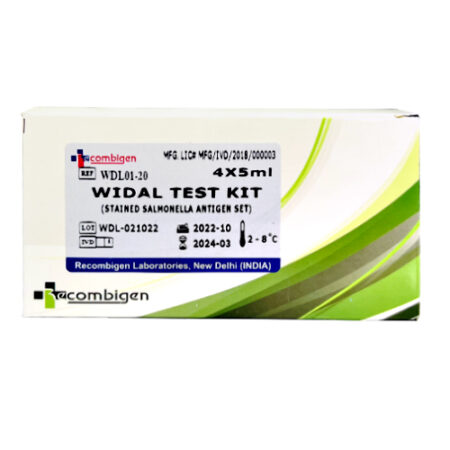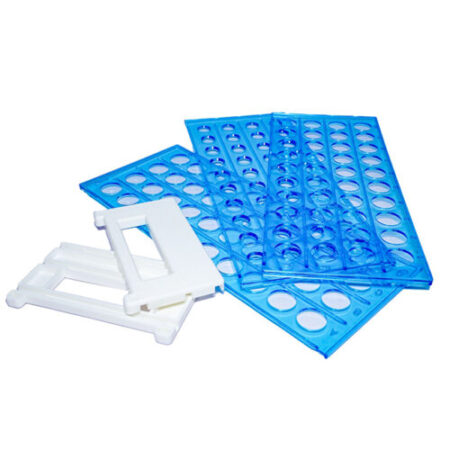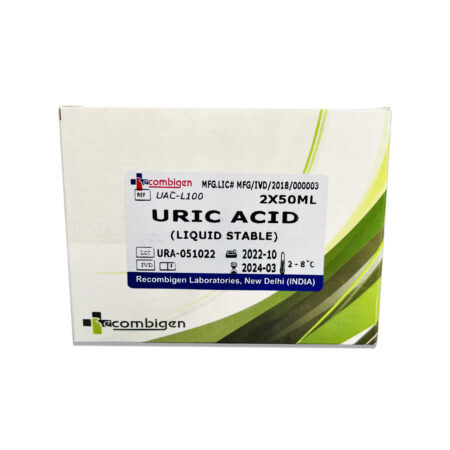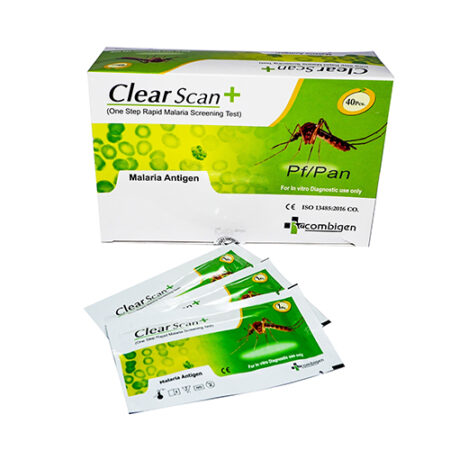The Widal test, also known as the Widal agglutination test, is a serological test used to detect antibodies against specific strains of Salmonella bacteria in the blood serum. It is primarily used for diagnosing typhoid fever and other salmonellosis infections.
The Widal Salmonella Antigen Set is a diagnostic kit that contains a panel of different Salmonella antigens. These antigens are proteins found on the surface of the Salmonella bacteria, and they stimulate the production of specific antibodies in the body when an individual is infected with Salmonella.
The test works by mixing the patient’s serum with the Salmonella antigens present in the Widal Salmonella Antigen Set. If the patient has been previously exposed to Salmonella and has developed antibodies against it, the antibodies in the serum will bind to the antigens in the test kit, causing agglutination or clumping of the bacteria-antibody complex.
The degree of agglutination is observed and interpreted to determine the antibody titers against specific Salmonella strains, typically reported as dilution ratios. Higher titers indicate a more significant antibody response and can suggest a current or recent infection with Salmonella.
It’s important to note that the Widal test has limitations and is often used in conjunction with other diagnostic tests for confirmation. Interpretation of Widal test results requires careful consideration of clinical symptoms, medical history, and other laboratory findings.
If you suspect you have a Salmonella infection or have been exposed to the bacteria, it is recommended to consult with a healthcare professional for appropriate testing and diagnosis. They can provide you with more accurate information and guidance based on your specific situation.








Reviews
There are no reviews yet.